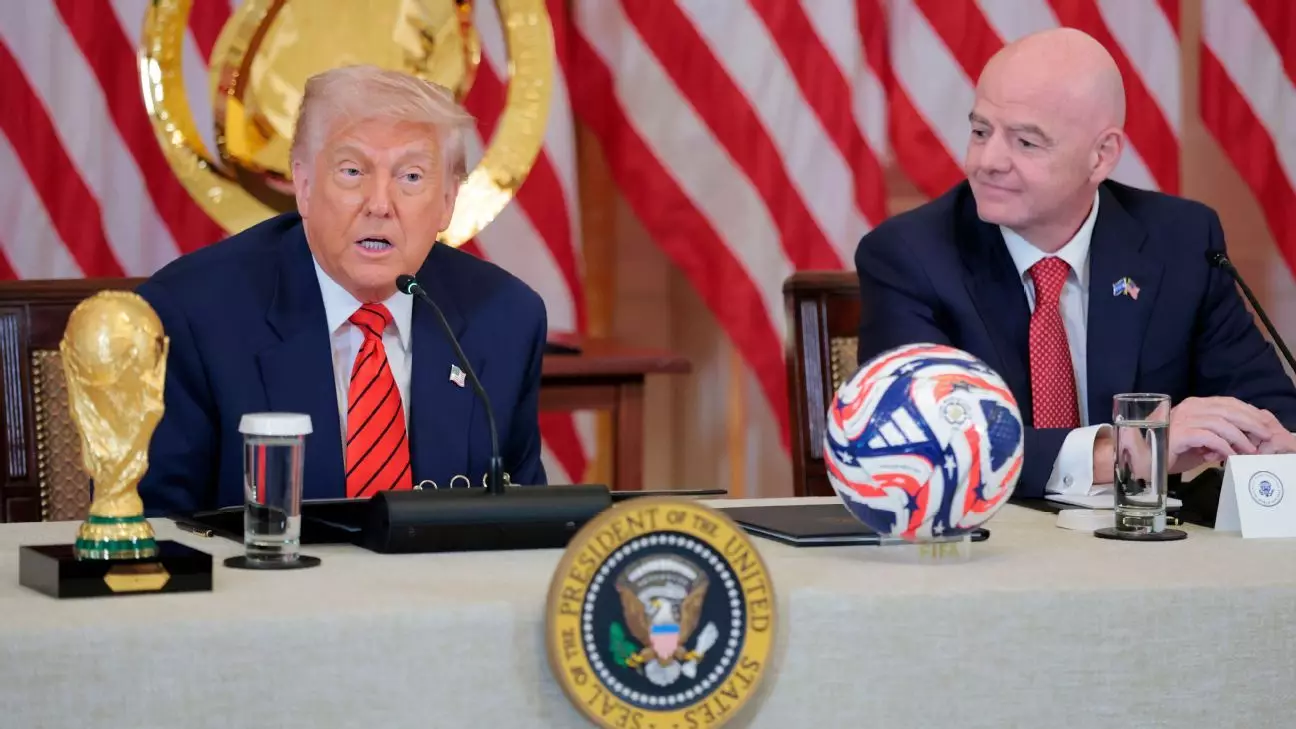In a surprising twist, former President Donald Trump has posited that the allure of competing in the 2026 World Cup could serve as an “incentive” for Russia to reconsider its ongoing war in Ukraine. This perspective not only treads on thin ice but challenges the conventional wisdom surrounding the intersection of sports and global politics. Since the onset of hostilities in Ukraine, Russia has been sidelined by international sporting bodies such as FIFA and UEFA. In Trump’s mind, peace could be a mere contingent formula—a notion that raises eyebrows while sparking conversations about the role of sports in diplomacy.
Understanding the Ban
FIFA and UEFA’s decision to ban Russian teams stemmed from a broader condemnation of the invasion, reflecting a unified stance among nations against aggression. The implications of such a ban are profound, underscoring the belief that sports should remain a sanctuary devoid of geopolitical strife. While Trump’s assertion may draw attention, it also highlights a perplexing misunderstanding of the initiative of international sport as a tool for moral clarity rather than political leverage.
During a meeting with FIFA President Gianni Infantino, Trump expressed surprise regarding Russia’s status in international football. Infantino’s confirmation underscored the ban, which has kept Russian teams from participating in crucial qualifiers. The former president turned this revelation into an opportunity for dialogue, suggesting that reconciliation could lead to Russia’s reacceptance into the global football community. His stance, whether earnest or misguided, raises questions about the effectiveness of sports as a pressure point in international relations.
The Global Response to War
Trump’s comments come amidst ongoing bloodshed in Ukraine, with harrowing reports suggesting thousands of lives are lost weekly. His simplistic framing of ending the war for a chance at World Cup glory almost trivializes the serious discourse surrounding such conflicts. The proposition that athletic prestige could lure nations back to civility overlooks the complex political, ethical, and humanitarian considerations that must precede any sporting engagement.
The eagerness to engineer peace through football appears, at best, an oversimplification. Nations embroiled in conflict require resolutions that address grievances and foster long-term stability, not just short-term sporting advantages. Trump’s candid remarks may not resonate with experts in international relations, who argue that true change requires more than the promise of a game.
Friendlies Without Stakes
Interestingly, since being barred from competitive fixtures, the Russian national team has participated in a series of friendlies—garnering a record of 11 wins from 16 games. This statistic could suggest a different narrative—one of resilience and continued participation on the global stage, albeit in a less significant capacity. Yet, these matches, devoid of competitive stakes, serve to highlight the limitations of international isolation tactics.
In the grander scheme, the notion that sports could bridge divides is not novel. History is rife with instances where athletic competitions have fostered dialogue among adversaries—a fact that cannot be ignored. However, Trump’s perspective is certainly unconventional, raising debates on whether the football field could ever replace the negotiation table as a reality check against war.
The intersection of sporting aspirations and brutal realities paints an intricate picture, one that merits thorough scrutiny and humanitarian consideration.

